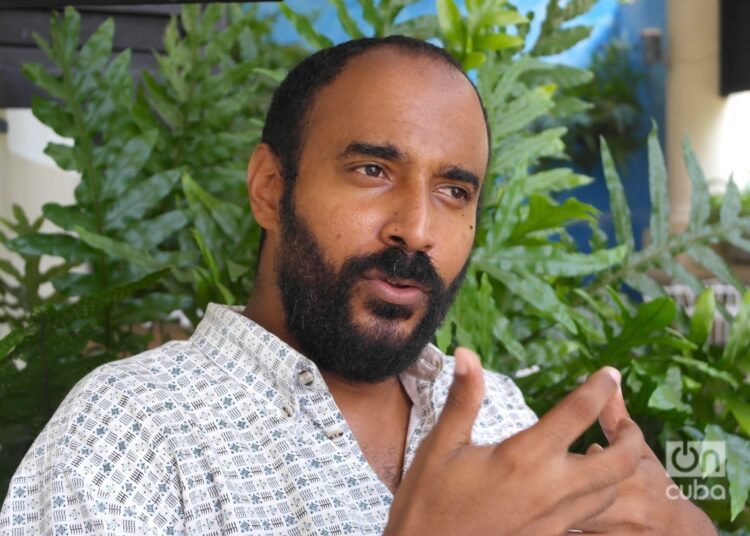The first time many saw Professor Fabio Fernández was on a broadcast of the Mesa Redonda TV program, where he explained, from his experience as a History professor at the University of Havana (UH), that the “pride of being Cuban” was being lost in the context of the deep crisis that the country is going through.
His analysis brought him notoriety, by daring to touch on such a controversial subject. Not only was he praised, but he also sparked a kind of crusade on social media. Since then, the opinions he disseminates on Facebook often provoke debates.
Close to a year after that program on national television, he spoke with OnCuba about the impact of the crisis on national sentiment and on the consensus that has sustained Cuban society for six decades. Fabio Fernández (1988) has a PhD in Historical Sciences and is a full professor at the UH, where he teaches History of the Cuban Revolution, in the Faculty of Philosophy and History.
You explained on television that “the pride of being Cuban is not only built based on the allusion to the glorious past lived but also based on the present and the future of successes and prosperity that we can materialize.” In the current crisis, you concluded, “the pride of being Cuban has been lost.” Do you maintain that statement? Why?
On that occasion, I said that Cuban patriotism was being challenged. It is something that is born basically from the crisis situation that we are living. I maintain that this reality exists, that there are people, segments of the citizenry, who are becoming somewhat disconnected from the idea and the Cuban project.
Fernando Ortiz distinguished being Cuban from Cubanness. The feeling of being Cuban is the signs, the features, that give us uniqueness. But Cubanness is a will to belong to that project that is Cuba. Today, the latter is being torn apart by the crisis.
It does not mean that tomorrow Cuba and what we are will disappear. Not at all. My own training as a historian leads me to distance myself from catastrophic alarmism. But, without a doubt, there is an injury within the universe of Cubanness.
What are the causes?
The fundamental cause has to do with the crisis. We are a nation that unfortunately is not able to form a project of prosperity for its citizens, it cannot model a country project in which everyone feels they can participate. There is a scenario of material insecurity, of hopelessness. It is a crisis that goes from the economic and the social, passes through the political, and ends up dialoguing with elements of a cultural and spiritual nature.
In difficult times the soul of nations creaks and I believe that the soul of ours is creaking. From these creaks, births are produced. Historically, this has generated the ferment for change, the search, new ideas to transform reality. I believe we are in such a moment.
On the other hand, I don’t like to generalize. We can’t say that Cuban society as a whole is experiencing this phenomenon, but that it is manifested in certain segments. Perhaps it can be seen in the younger universe. It is not good to build a global discourse in which everything is included without nuances.
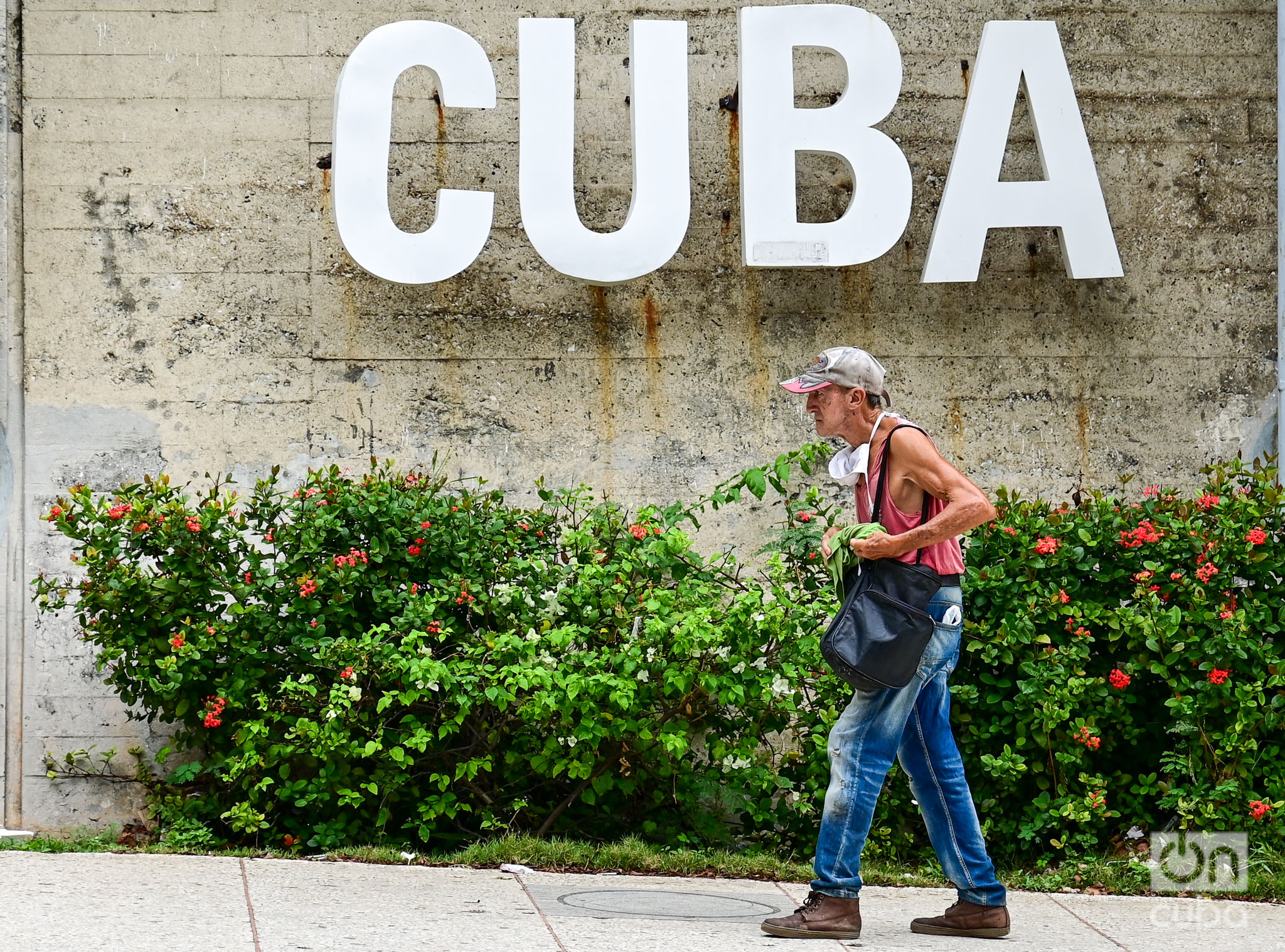
What could prevent this loss?
The fundamental solution is to build a coherent country project, where people feel good, where the majority finds a way to materialize their lives with spiritual tranquility. As soon as we can do it with the necessary solidity, we will undoubtedly see that these subjective phenomena will have a level of moderation.
It is not about making a mechanical calculation in which material prosperity is equal to the country project’s solidness. It is more complex. But that prosperity, which goes through the material, transcends, and reaches the spiritual, will be the way for people to say that this is their country and they are betting on it, that they stay and contribute, that their individual project is linked to one of collective transformation.
It is the key to giving strength to the Cubanness that is today injured, but still alive. There are many people who, from a tremendous sense of being Cuban and Cubanness, push forward and defend the construction of a better Cuba.
From inside and outside the island…
You can be more patriotic from New York than from San Miguel del Padrón. Although, of course, geography has an impact and is fundamental.
The Cuban nation has long transcended the borders of the island; there are Cubans everywhere, and they are not Cubans just because they were born here, but because of the will to be Cuban, to belong and to contribute.
Therefore, a successful national project in today’s Cuba must fundamentally rely on those within, but also on those outside who are willing to contribute. Of course, it is not perfect, it is not pure harmony; there are contradictions, diversity.
One must know how to manage plurality, to model a project in which we all fit. This spirit of greater unity is the best of the Cuban patriotic tradition. It is not a unity that is alien to conflicts, but that knows how to resolve them without breaking up.
Has this detachment or deterioration of the pride of being Cuban occurred at other times in national history?
The erosion of Cubanness is a phenomenon that is not exclusive to the especially dramatic circumstances we are currently experiencing. This process has manifested itself at other times in the course of the patriotic course. For example, at the end of the 19th century and beginning of the 20th century, there was a great debate regarding the paths that Cuba should take once the ties with Spain as a colonial power had been broken. During this period, one can trace the resurgence of annexationist positions that basically defended the impossibility of a sovereign nation project.
It must be said that, at the popular level, the pro-independence sentiment was undoubtedly the majority, but this injury was seen.
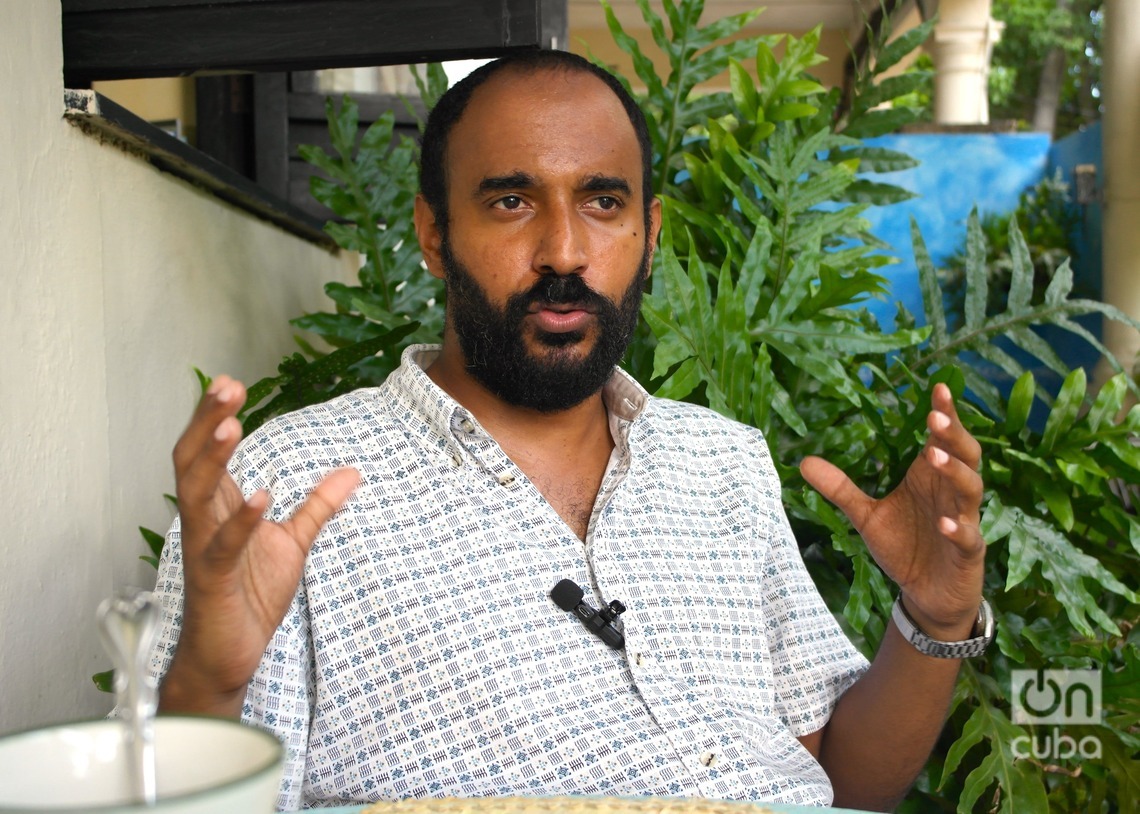
Crisis and Consensus
You have said that Cuba is experiencing a socioeconomic crisis that is progressively taking on political connotations. Why?
Cuba’s socioeconomic crisis is evident, palpable. The macroeconomic indicators demonstrate this; the levels of social precariousness, the spiritual crisis, also affect different segments of our citizens.
The crisis, which is not new, but is at least thirty years old, has been intertwined with an erosion and fracture of political consensus.
Some would love to see a political crisis break out because they believe that, from this universe of destabilization, in these troubled waters, certain fishers can make a profit.
In recent years, a new political subject has emerged: that generation that did not know the pre-revolutionary past and cannot compare it with the Revolution. Nor did they live the years of glory of the Revolution. They have lived their entire lives in crisis, and they do not build consensus in the same way as previous generations.
There has also been a change of leadership in Cuba. The generation that had historical legitimacy in the eyes of large sectors of the population has been withdrawing.
Another important issue that leads to the erosion and fracture of consensus is the management of the crisis. It is evident that there have been errors. Measures that have been applied at the wrong time; others that, perhaps with the best intentions, have been counterproductive in their practical results; sequences that have not been the most appropriate. To a great extent, there has been a failure to implement the reform program defined by the Guidelines of the 6th Congress of the Communist Party of Cuba in 2011. Opportunities have not been taken advantage of.
Sometimes, it seems that fundamental supports in the consensus have been neglected, which under no circumstances can be harmed and have deteriorated perhaps more than necessary, such as education and health.
Antonio Romero: “In Cuba, dogmas prevail over economic rationality”
The crisis has also impacted sectors of the population that did live through better times, and have a greater commitment to their own history… Do you think this will change their ideals?
The wear and tear experienced in Cuba is clearly evident in the youngest ― those generations of the crisis ― but also in those who are older and may feel frustrated because they committed themselves to the project of the Revolution, worked tirelessly for it, and today they are due a pension that is not enough for anything. How can they feel?
In the 1990s, a consensus was maintained on ideas such as: “I was illiterate and the Revolution allowed me to learn to read and write; I lived through the upward curve of the Revolution, I am with it.”
The generations that upheld this pact understood that the difficulties they were experiencing were temporary, for a relatively short period; but that time has become thirty years, which corresponds to half a lifetime.
A person who in 1994 or 1995 said “this is bad now, but I’m staying” may say something else today. He may not even be going to change his life, but he may not have the means to ask a grandchild to stay in Cuba. The wear and tear of the elderly and the wear and tear of the young overlap.
However, some people continue to live the Cuban reality with the will to be oblivious to the wear and tear and to continue believing and understanding that things are difficult, but that ways can be found.
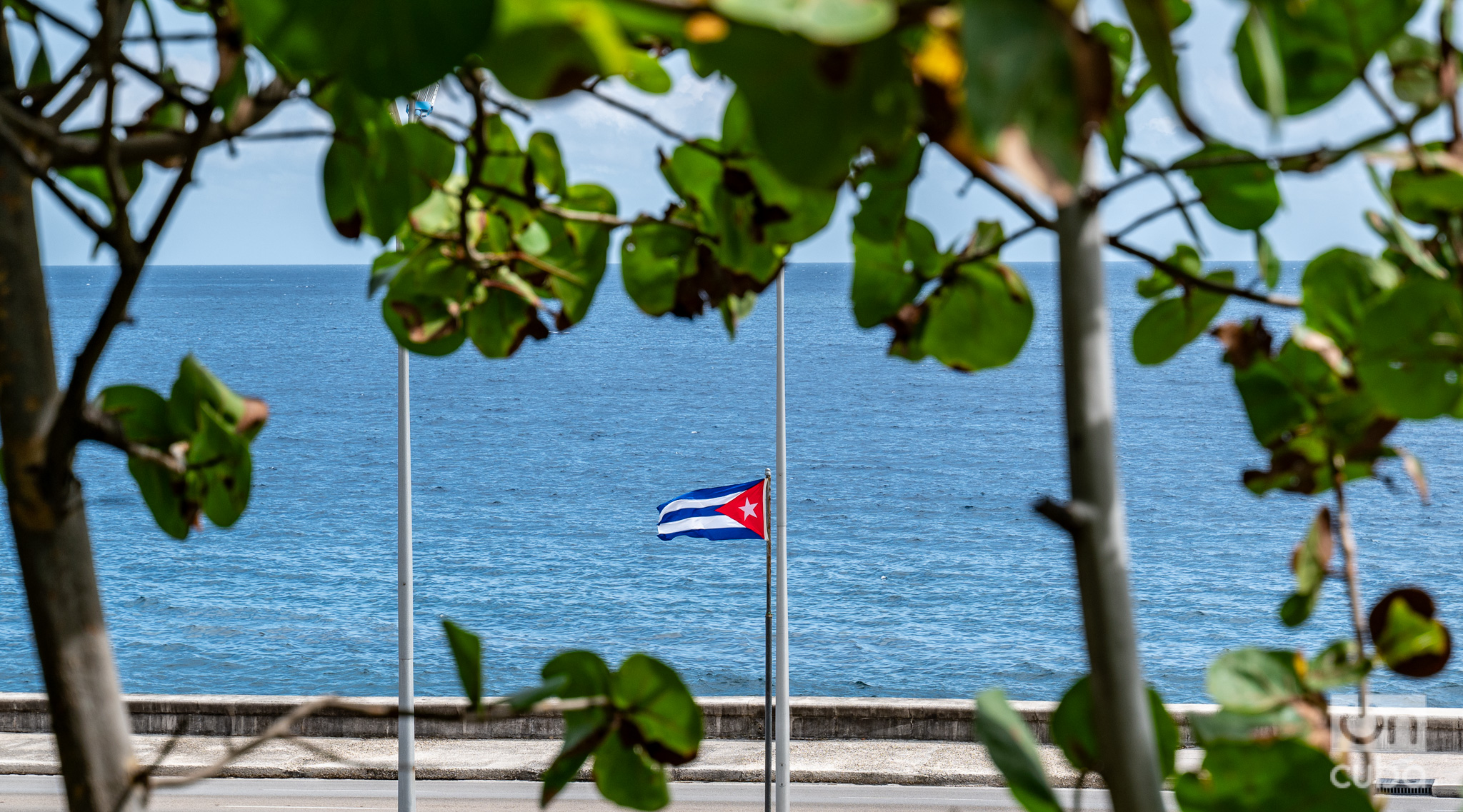
Some consider that the conditions of poverty increased by the crisis are a window to capitalism.
There are those who assume the idea of the political crisis as the end of socialism in Cuba, which would be followed by “wonderful capitalism.” I am anti-capitalist. Capitalism does not convince me and the one that would affect Cuba, an underdeveloped, dependent country, does not attract my attention in the least. We only have to look at the scene around us and see countries that, even with many more resources than Cuba, are experiencing complicated situations.
However, Cuban socialism has had many faces. Today we have one that is not pretty, which has to do with the precariousness of life. There are even those who speak, in a somewhat derogatory tone, of a relative “Latin Americanization of Cuba,” that certain features that the Revolution managed to break with, almost eradicate, have re-emerged.
It has happened as a result of many things. One of them is that the United States is waging an economic war against us that puts us on the back burner; another is that we have an economic model that cannot find paths to prosperity; another has to do with global contingencies that have also put us in check; and the last is with the weakening of certain social policies.
Today, we have phenomena that for a long time did not exist or, at least, did not reach the level of visibility that they do today. And they are lacerating, they hurt a lot.
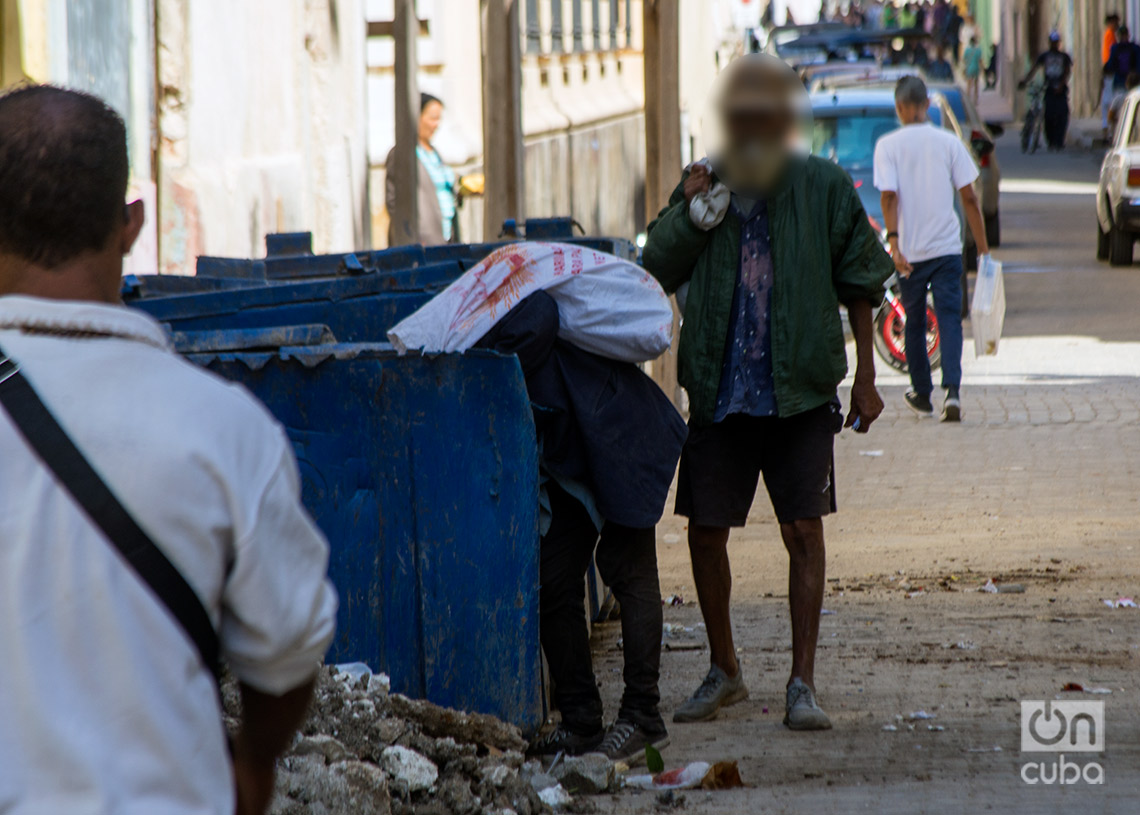
We have gone backward in indicators that were tremendous successes. For example, Cuba had infant mortality rates that were extraordinarily good. They are still good within the context of the Third World; but they are worse than what we had and for us, it means a setback.
Many things influence this. It is true that the global crisis that affects Cuba, the impact of the pandemic, our economy that is not recovering, the reforms that have not gone well, the U.S. blockade…. All of that is a cocktail that hits social indicators and puts them under extraordinary pressure. But if, at the same time, policies do not always manage to sustain a will of “this cannot deteriorate”…then another negative contribution is generated.
There is the example of the 1990s, in a context with so many problems, the exercise of will and the placement of resources in essential places guaranteed that infant mortality decreased.
What has changed?
There are variables related to crisis management.
One issue is the search for collective solutions. During the Special Period, there were the Workers’ Parliaments, discussions that paved the way for the adoption of transformations that had been built with citizen consensus.
Today we lack dialogue and political pedagogy from the exercise of leadership. And perhaps we lack a clear definition of where the resources go and why they cannot go anywhere else.
Economists have talked about the structure of investments in Cuba. It is a point of debate whether too much is invested in tourism and less in public health, education, and agriculture.
Some defend this investment structure and say that it has economic rationality. Others think, myself included, that it is not necessarily the most consistent with the situation in the country.
Equality vs. egalitarianism
Have social policies that sought to treat everyone as equals, paradoxically, ended up without resolving inequality?
Equality is perverted on many occasions and, in the case of Cuba, it happened through egalitarianism. It was not understood that equality is true when it is accompanied by equity, recognizing that the starting points are different and that not everyone needs the same.
There were probably people who were given too much and there were people to whom we ended up owing. The dream of equality, with certain failures in the first thirty years of the Revolution, dragged on towards the crisis of the 1990s, which lasts to this day.
In this context, two things were mixed. On the one hand, the objective precariousness of living conditions and the insertion of market logic. Because the latter does have a role in the reactivation of the economy, but it implicitly brings inequality.
The capitalist market with which we had to begin to dialogue and which we had to assume since the 1990s generates inequality. Because in the pizzeria it is not the same to be the owner as the employee.
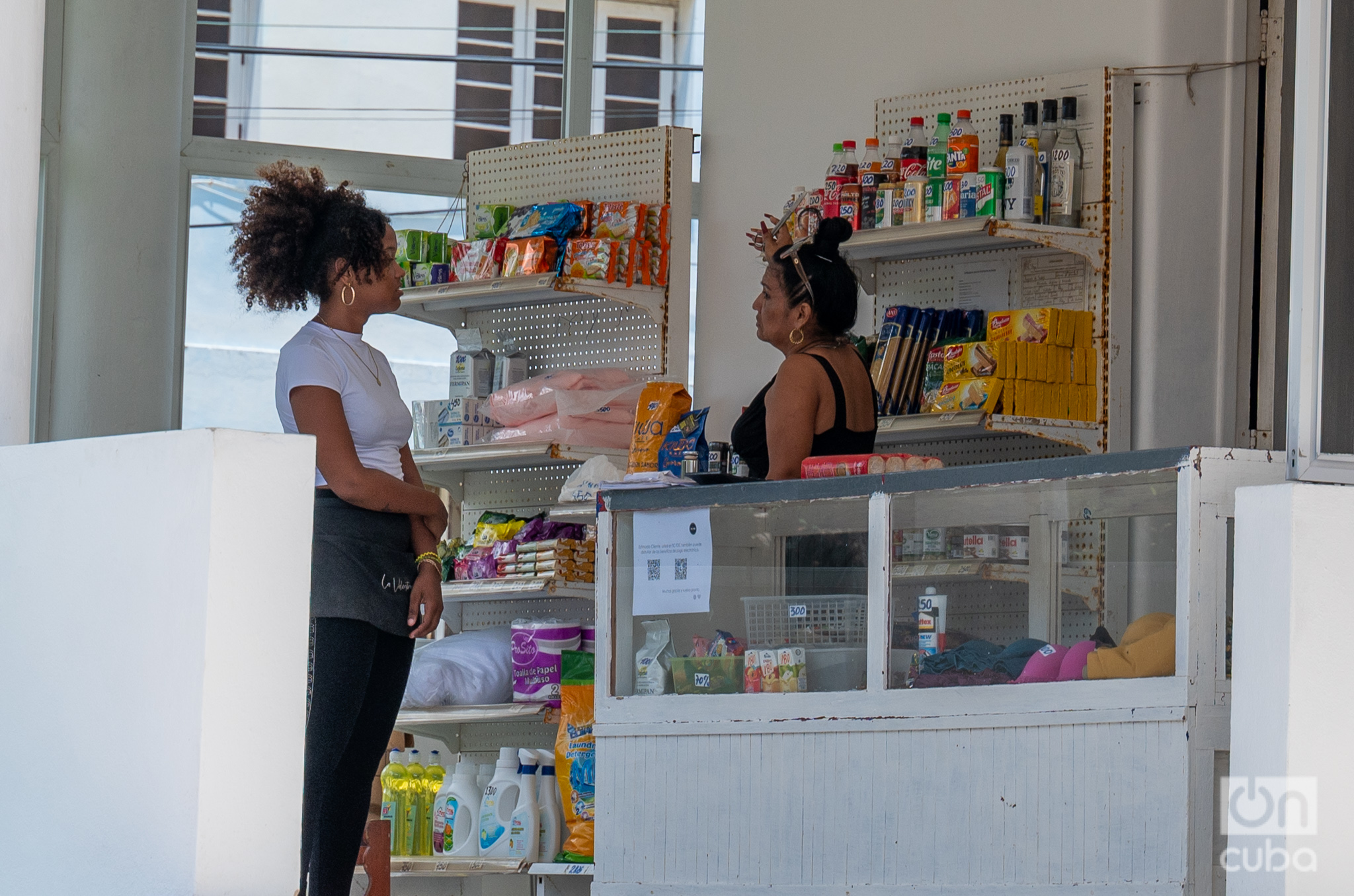
What does the participation of new private entrepreneurs represent for the Cuban system?
Within a capitalist ownership structure, what is reproduced is capitalism. And the asymmetries inherent to the system.
Now, the great challenge is to achieve that this logic, which objectively dynamizes the economy, can be subordinated to the plans of the socialist transition.
It is a great question. But it is evident that the statist, centralized model has not managed to work in the field of its economic tasks, nor from the perception that people have about their reality, of real empowerment over the means of production, of participation in defining social life.
Now, can it be achieved? Does it work or not? Several examples try to validate it. There are the Chinese, the Vietnamese. In both cases, they know that they live better than their parents and grandparents. They trust that they will live better tomorrow and that their children will live better than them. There is a success there, which is expressed in the perception of the citizens, in living conditions, and in macroeconomic indicators.
Returning to Cuba, in a society in which “comrade” is said less and “sir” more, it implies the restructuring of old hierarchies that were once contested.
But this is not only due to the irruption of the private sector in socioeconomic life.…
Sometimes policies appear that have a tone of harsh adjustment that affects the people. That is not very socialist. There are policies that are taken from a vertical logic, of command and control, where there is no debate with the people. That is not very socialist either.
Unanimity vs. diversity
In one of your recent posts on social media, you stated that Parliament is not debating the same concerns as its constituents…
The last session of the National Assembly has been controversial, above all because of what you mention. At least in the circles, I moved in, there was a demand that the deputies be more vehement bearers of the voice of the people who are living a difficult situation.
It must be said that the Assembly has improved. Today’s sessions are better than those of ten years ago. But there is still a long way to go. This is noticeable when you live in difficult, complex times, like now.
The voice of the people has to be more present. Parliament cannot be a sounding board for government decisions. There has to be a stronger discussion scenario.
I have spoken with parliamentarians and I know that there is sometimes much more discussion in the committees, but, unfortunately, the perception I have as a viewer leaves much to be desired.
Militant unanimity hinders the credibility of the Assembly in the eyes of the citizenry. Parliament means different opinions, diversity, plurality, discussion that allows the creation of new ideas that improve what exists. And there is a debt in that.
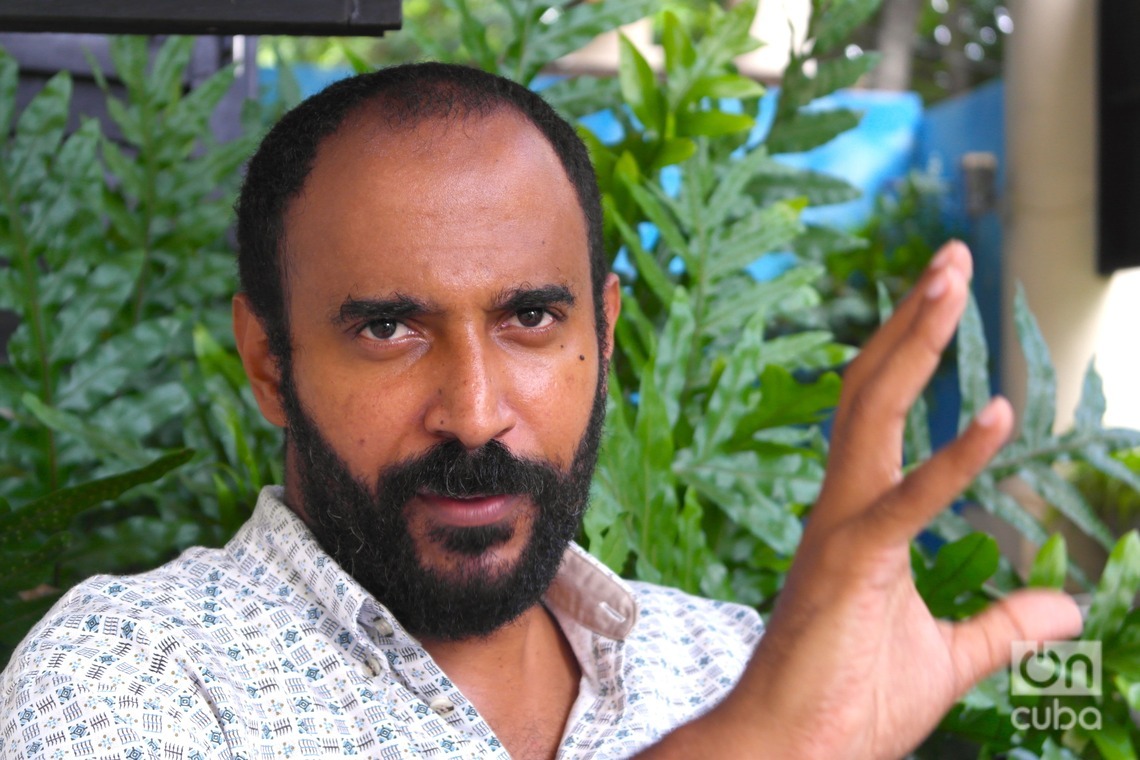
From your position as an academic, how would you describe the recent history of the country?
For me, the keyword to define us is crisis. Crisis is the intensification of the universe of contradictions that materializes in a certain reality. Today we are experiencing that.
We are a country in crisis, a country that is hurt and that hurts.
Contemporary Cuba hurts me. It hurts me to know that what’s-his-name is leaving and that so-and-so is gone. It hurts me to feel that there are policies that fail to get on track to improve the living conditions of the people.
It hurts me to see so many people who have no hope and to see how those who have put their lives into this feel frustrated. And it hurts me to see how many people do not see themselves in any other Cuba than one of restoration of capitalism, based on an idyllic image.
But I do not want to give up hope, or the possibility of making a life in Cuba, of making a future here. I am anchored to my essential affections for this land. I continue to think about it critically and try to contribute a little with my professional work.

